Living Sustainably: 10 Tips on How to Be More Sustainable

Get news, updates, & event Info delivered right to your inbox:
10 Sustainable Living Tips to Level Up Your Personal Sustainability
Do you drive an electric car, subsist on lentils, and refuse to throw anything away? Is your library stocked with dog-eared copies of Silent Spring, A Sand County Almanac, and The World Without Us and your home outfitted with solar panels, smart switches, beehives, and compost galore? Then you might just be an environmentalist!
Just getting started on your journey and feeling overwhelmed by all the ways to live more sustainably? That's completely normal and okay, too — you don't have to have it all figured out to make a difference for the planet! As we often say around here, "don't let perfect be the enemy of the good." The world needs lots of people doing sustainability imperfectly, rather than just a handful of people doing it perfectly (but we commend those that are!).
Here Are 10 Eco Friendly Tips To Help You Reduce Your Environmental Footprint for Sustainable Living
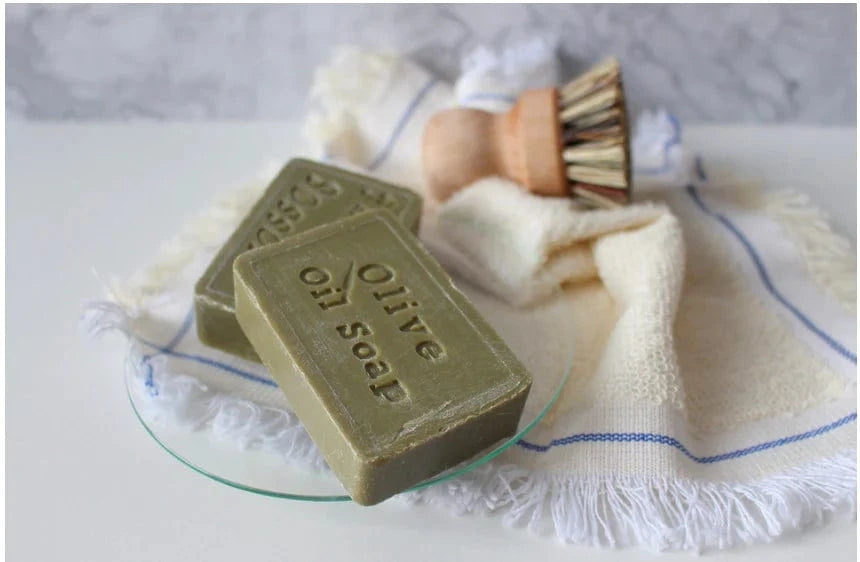
1. Make Your Own Soap
The chemical additives, micro-plastic beads, and plastic packaging that come with most soaps pose a threat to our health and planetary health, but have you ever considered making your own soap?
You’ll be able to choose your ingredients wisely, using the best locally sourced, eco-friendly goodness you can find. Plus, just one batch can keep you and your family abundantly clean for months! Nervous about working with lye? Just do your research, invest in the proper gear (you can probably find at least some of it at a local thrift store), and follow all safety precautions. You’ve got this! 💪
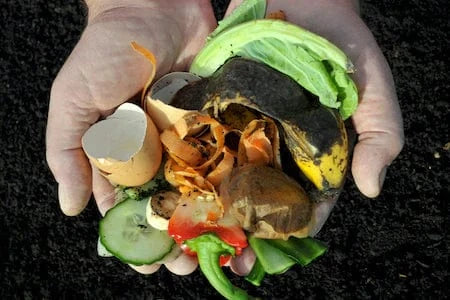
2. Compost or Start a Worm Farm
Composting is a great way to reduce food waste, feed your garden, and do your bit for the planet, one meal at a time. One easy way to get into it is to establish a worm compost system and let the creepy-crawlies do the work for you! Getting started is the hardest part, but once your worms are settled into their new home, they can eat 1/2 of their weight in food scraps every day. So if you start with 1 lb. of worms (which we recommend), they’ll eat 1/2 lb. of scraps! Most of the same rules apply to vermi-composting as do to the garden-variety kind, so if you’re already familiar with the practice, this will be an easy peasy way to build a steady supply for all of your gardening needs. Need a primer? Check out our quick-start Compost Guide!
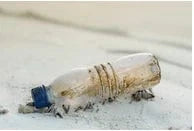
3. Build a Plastic Bottle Greenhouse
Plastic takes hundreds of years to break down. Some clever gardeners use that unfortunate fact to their advantage by creating sturdy, long-lasting plastic bottle greenhouses. Even if you live a plastic-free life, there are plenty that don't. Get your neighbors, friends, family, schools, or even local restaurants to fill bins that you provide with uniformly sized plastic bottles. Chances are, they’ll be glad to get rid of them — and you’ll eventually have enough (1400, to be exact) to build this awesome greenhouse. After you’ve completed the project, you can serve everyone a meal made that's made exclusively from greenhouse-grown veggies and gently educate them on the importance of cutting plastic out of their lives.
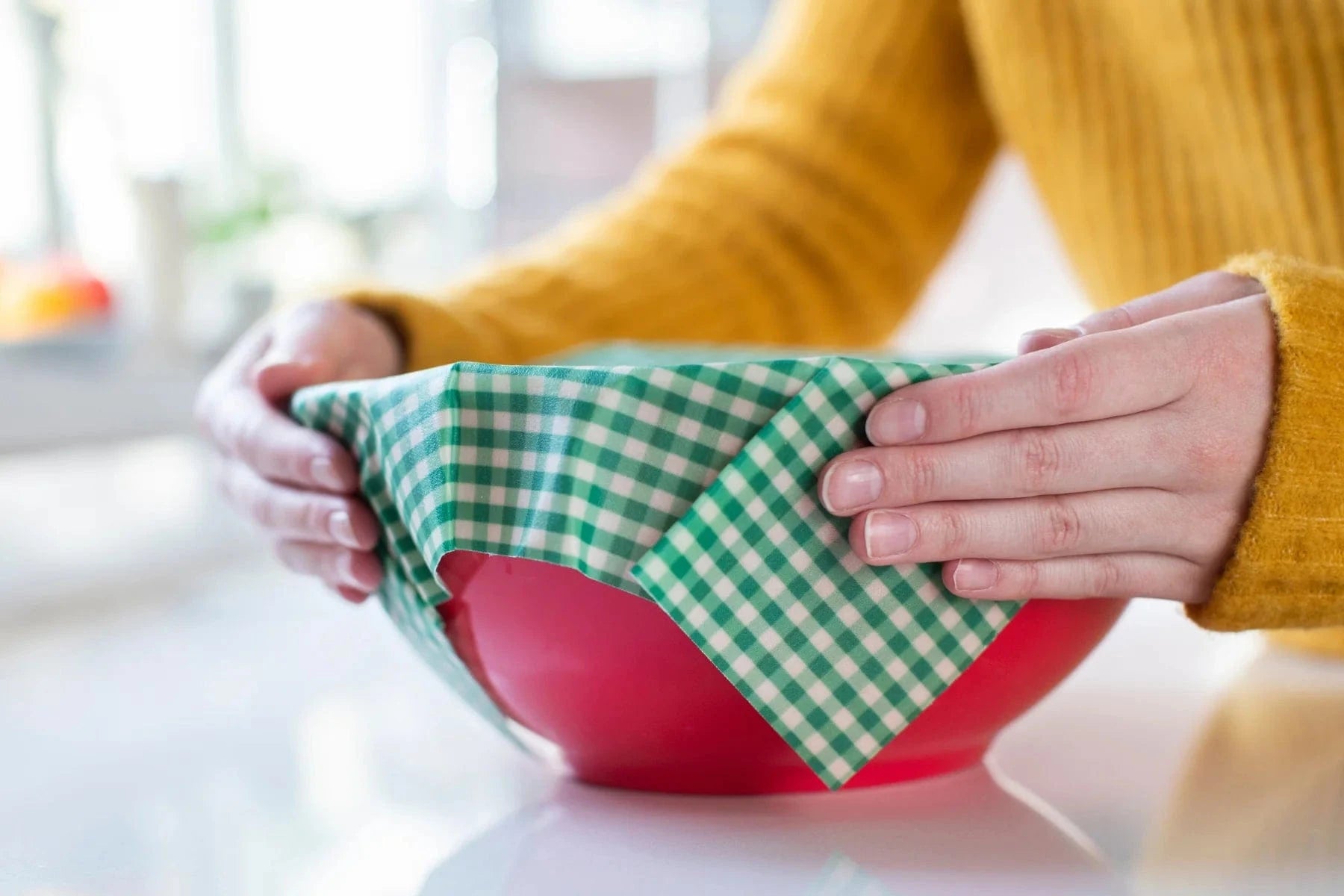
4. Make Your Own Beeswax Wraps
Speaking of cutting plastic out of our lives, a genius solution for wrapping up leftovers, transporting snacks, and more: beeswax wraps! Making them is simple: all you’ll need are fabric scraps, beeswax, jojoba oil, and pine resin, as well as some basic kitchen supplies. Pine resin can be found any time a pine tree falls down or loses a branch. But before you go around scraping trees, be sure that you aren’t stealing. Only harvest resin that has dripped well below the area of injury — or harvest exclusively from trees that have fallen. And if you’re afraid to harm your favorite woody coni-FRIENDS, consider sourcing it from a sustainable harvester.
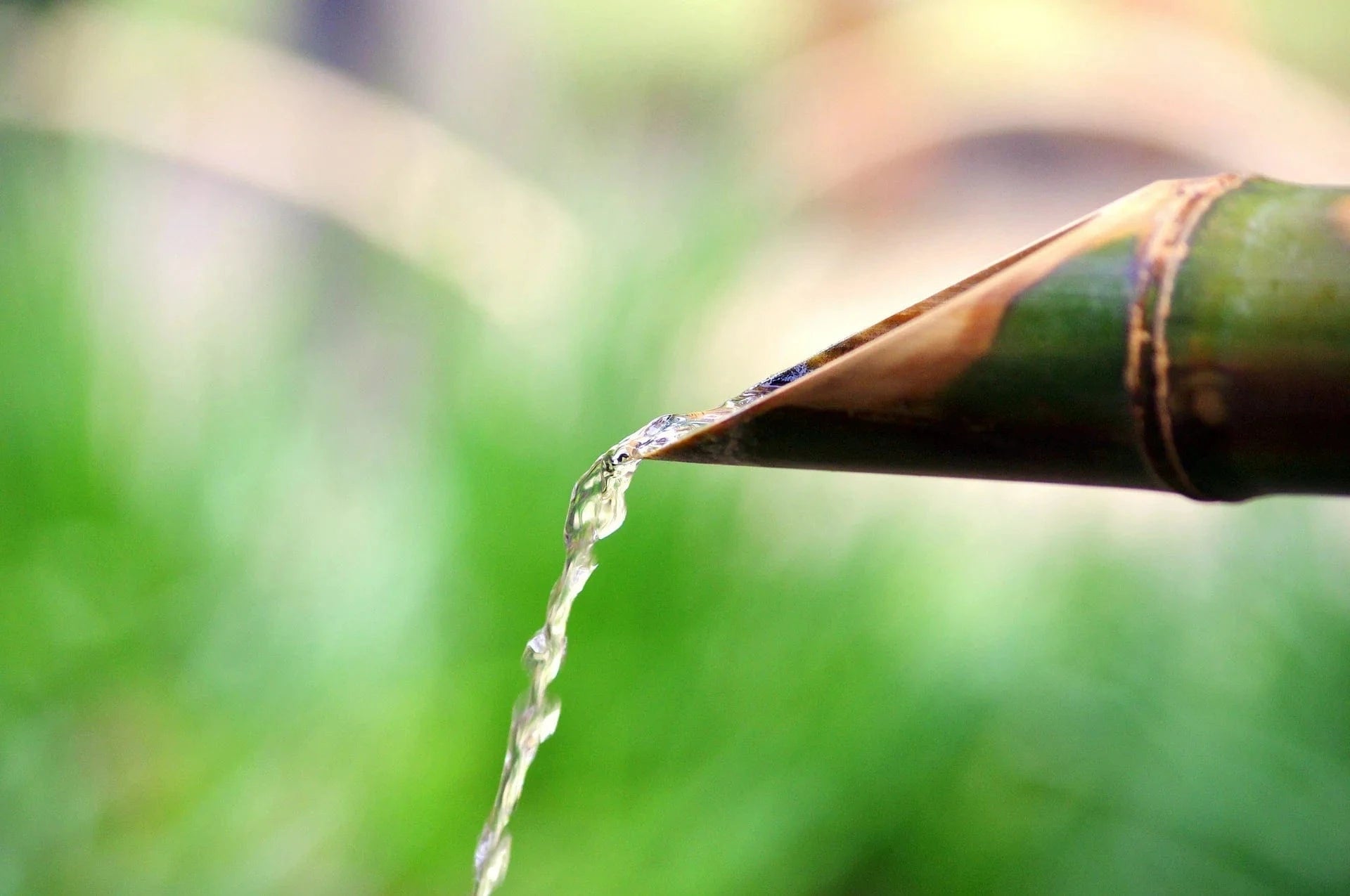
5. Set Up a Laundry-to-Landscape Greywater System
As you know, greywater is our dirty secret. Containing traces of dirt, food, grease, and household cleaning products, it gets diverted straight to our septic systems and wastewater treatment plants — eventually to be released into rivers, lakes, and estuaries. And unfortunately, even the most innocent-looking greywater can quickly pollute and damage aquatic environments. Slow the flow and cut down on water waste by setting up a laundry-to-landscape greywater system. An easy starting point for greywater newbies, this system doesn’t require any alteration of household plumbing and can be customized with ease.

6. Find (or start) a Repair Cafe Near You
It’s no secret that we throw away way too much stuff. And although repairing things was once common knowledge, many of the skills needed to do so have fallen out of regular use. That’s where repair cafes come in: open to the public, they're inclusive events where knowledge, tools, and materials are shared freely with anyone that has something they need to fix. From clothes to furniture, electrical appliances, bicycles, crockery, appliances, toys, and more, there's probably someone there who can help you fix it. If not, they can help you find the right professional. In a world that feels like it’s slowly being drowned by the tide of consumerism, repair cafes are a welcome niche of resilience and community!
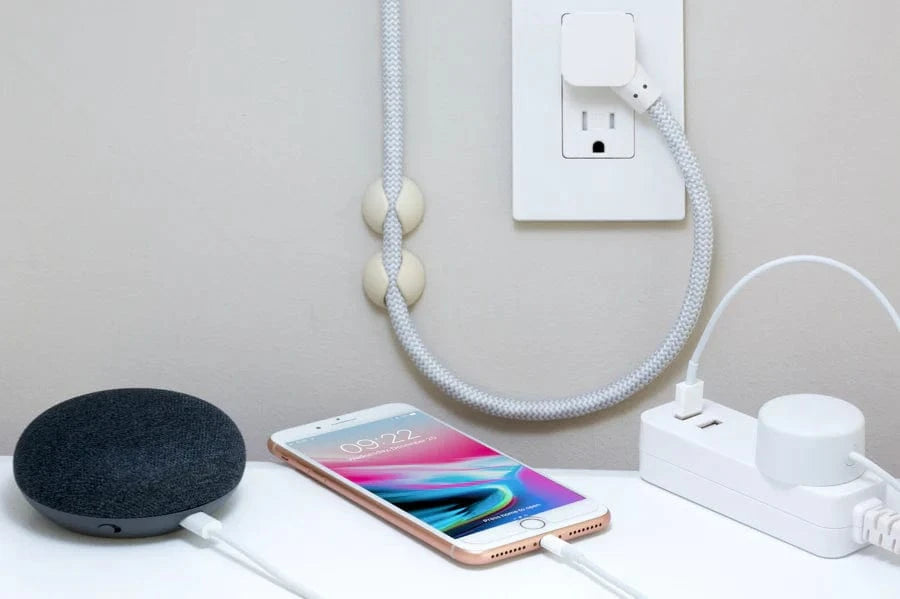
7. Reduce Your Energy Consumption
In many homes, electronics are left plugged 24/7, secretly stealing ghost power, burning up fossil fuels, and hijacking your electric bill. That toaster doesn’t look so innocent now, does it? Fighting these energy vampires won’t require facing off with Dracula — instead you’ll have to vanquish an even scarier demon: your habits. Turn the lights off every time you leave a room, unplug all unused electronics, and consider investing in smart strips to regain control over your electrical usage. If it helps, leave yourself reminders using sticky notes! Using less energy goes a long way to live a more sustainable lifestyle.
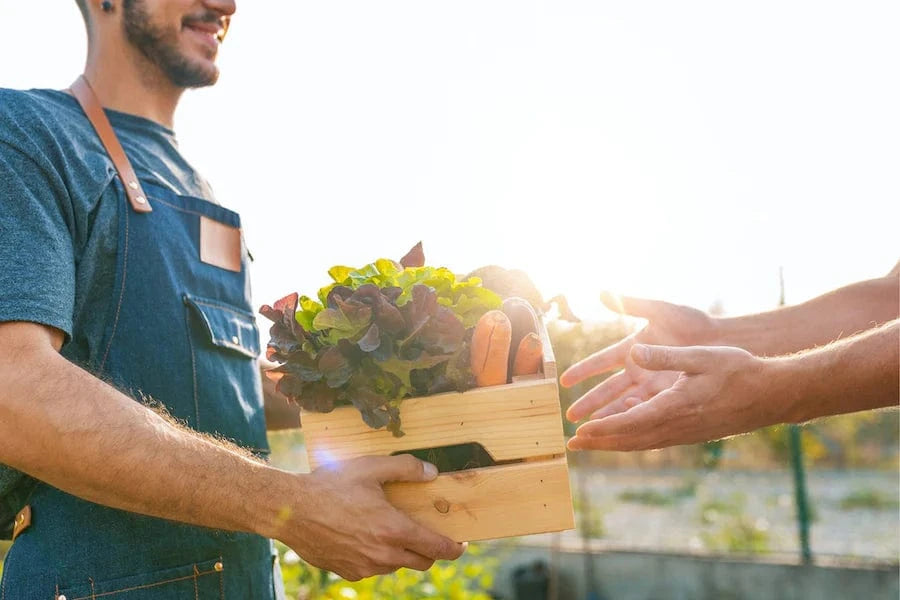
8. Be Mindful Of Your Car Usage
We get it: in many parts of the world, vehicles are a necessary evil. Whatever the reason, you’ve got a car named Betsy and you ain’t givin' er' up. In addition to choosing public transportation when possible, there are plenty of tweaks that you can make to waste less gas and reduce your impact if you drive a gas or diesel powered vehicle. These include regular maintenance and tire pressure checks, unloading any heavy cargo asap, avoiding sharp acceleration and heavy braking (we see you, Mr. Road Rage), cooling down with open windows instead of AC, and turning off your engine any time you’re waiting (this includes being stuck in line) for longer than 1 minute.
9. Shop Local: Commit to Buying 50% From Local Sources
When large swaths of rainforest are cut down every day to fill our plates, and then 1/3 of that gets thrown away, it’s pretty clear that there’s a problem. Looking to buy local products is a great way to reduce greenhouse gas emissions due to shorter supply chains. Maybe you're already getting at least some of your food locally, but with some smart tweaks, you’ll be well on your way to becoming a fully-fledged locavore. When possible, support local farmers and keep it simple — life is sweeter that way, after all!
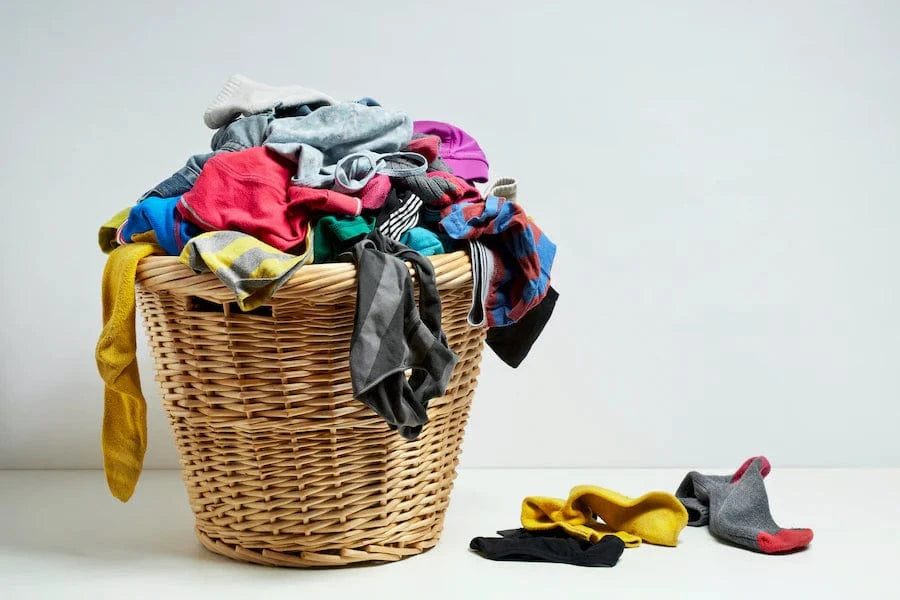
10. Reduce Your Water Consumption: Skip A Wash
No need to wash that pair of pants you wore to the office once — just spot clean it if necessary, this is an easy way to conserve water. Most washing machines waste a lot of water, and most loads are filled with clothes that aren't really dirty. Do your part for nature and hold off on laundry day until you’ve got a full load of well-worn garments. If possible, go old school and string up a clothesline to save on dryer-induced electrical costs.
There you have it! Those were 10 easy tips for sustainable living. If you're looking for more ways to live sustainably on a budget, be sure to read our tips on affordable sustainable living.
Want to learn more about how you can help the earth? Support reforestation around the world!
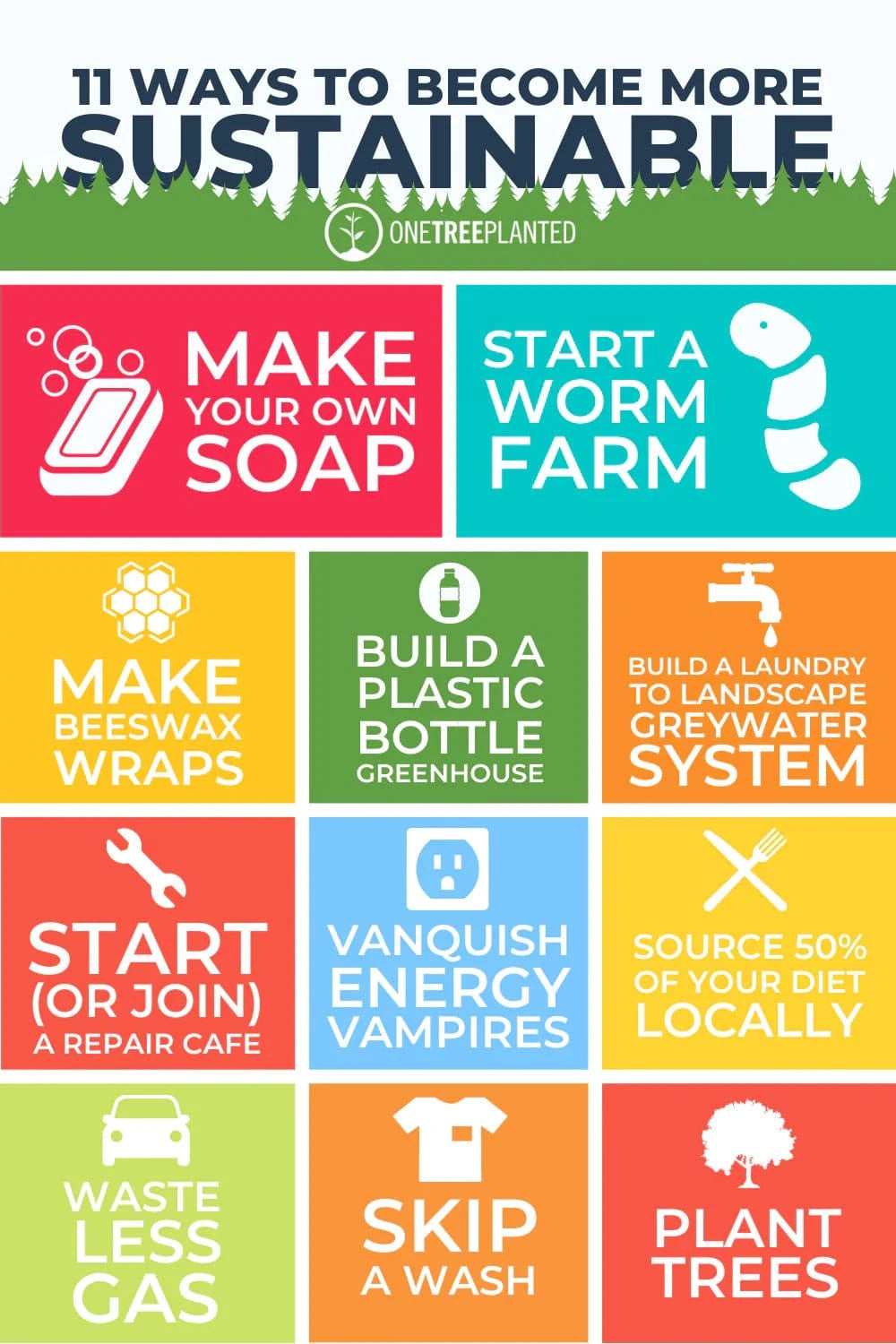
Get news, updates, & event Info delivered right to your inbox:
Related Posts
Sustainable Diet Tips: How to Eat Healthy While Protecting the Planet
13/01/2026 by Meaghan Weeden
Agroforestry Explained: Principles, Benefits, and Case Studies
08/01/2026 by Meaghan Weeden
Plant Your Resolution: Making a Global Impact With The Grove
01/01/2026 by One Tree Planted
Popular On One Tree Planted
How to Reduce Waste: 21 Practical Zero Waste Tips for Everyday Living
23/12/2025 by Meaghan Weeden
Inspirational Quotes About Trees
16/12/2025 by Meaghan Weeden
The 9 Oldest, Tallest, and Biggest Trees in the World
11/12/2025 by One Tree Planted
Fundraising Disclosures

Be Part of the Restoration Movement
The Grove is more than just a monthly giving program: it's a vibrant community of individuals who are dedicated to reforestation and environmental restoration on a global scale.





